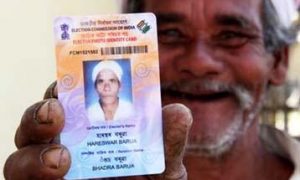The Delhi bench of the ITAT gives ruling in the case of Shivani Madan (the taxpayer), in which it upheld a taxation of Rs 9.8 lakh in her hands during the financial year 2014-15 (the year of the litigation)
The Income Tax Appellate Tribunal (ITAT) has held that both husband and wife will be held as owning equal share in a house property if a registered sale deed did not specify the extent of holding of a husband and wife.
Read More: New Income Tax Calculator as per Section 115BAC in Finance Bill 2023: Save more with Old Regime
The Delhi bench of the ITAT ruled this in the case of Shivani Madan (the taxpayer), in which it upheld a taxation of Rs 9.8 lakh in her hands during the financial year 2014-15 (the year of the litigation). On a vacant property, 50 per cent of the notional rent under the Income Tax Act was held taxable in the wife’s hand, according to a TOI report.
Earlier, a search was conducted on a business group and incidentaly, Madan was employed with the group. After the searches, it was revealed that the house property was purchased in 2011 for Rs 3.5 crore in joint ownership with her husband. Following this, queries started as to why the income tax was not disclosed from this house property in her income tax return.
Read More: New Tax Regime: Three Deductions can be claimed
In response, Madan responded with the house property income in proportion to her share in the property. She had invested just Rs 20 lakh in the property, about 5.4 per cent of the total value.
In various stages of the argument, the approach of proportion income was rejected. Finally, the ITAT rejected the submissions. It noted that the Calcutta high court had held income from property should be taxed only in the name of the husband, as the wife was a housewife, with no independent source of income and the entire investment was made by the husband. However, in the case of Madan, she was a salary earner.





































